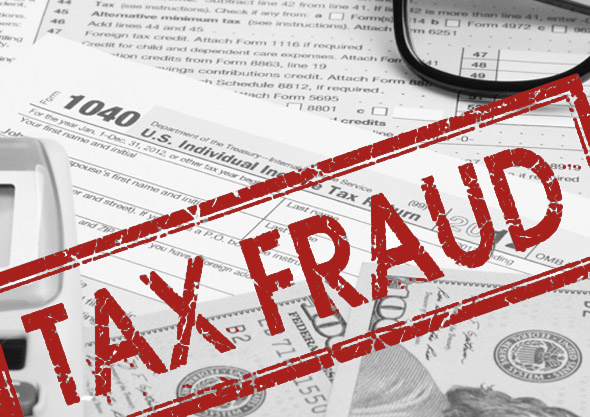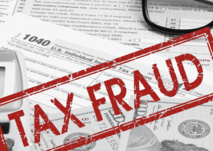Thestrategist.media – 29 May 2015 – What's more, this pattern is particularly troubling at this point. Data fraud and different cybercrimes are blooming generally as the IRS is attempting to make itself more open online—an intercection of occasions that could demonstrate risky for citizens and disastrous for the effectively pained office.
The pattern is clear. Every year, the IRS distributes a rundown of its "Grimy Dozen" expense tricks. In 2011, only one included some type of data fraud. This year no under 33% were telephone based or online tricks. Today, around one-quarter of all IRS criminal examinations are centered around wholesale fraud.
In mid-March, at the tallness of the late recording season, the Treasury Department's Inspector General for Tax Administration reported that it was getting upwards of 12,000 grievances a week around a telephone trick in which guests who guaranteed to be speaking to the IRS requested that citizens buy prepaid charge cards to pay indicated assessment bills. The scamsters would then get the card numbers from the casualties and clean out their records.
Anyway, those telephone based tricks may be paltry contrasted with another con: stolen character discount misrepresentation.
The amusement is basic: Crooks take Social Security numbers, record gives back that claim discounts, and have the discounts electronically stored into fake ledgers or conveyed to mail drops. Not just do they take cash from the administration, yet they make a colossal cerebral pain for authentic citizens whose IDs they have stolen.
The IRS has been cautioning about these tricks for quite a long time, yet has now set up another group to research cybercrimes. The Justice Department's Tax Division has been concentrating on these cases subsequent to 2012, and has started around 1,000 examinations and brought 725 arraignments.
Yet, there is a genuine question about whether either office has the assets to stay aware of this rush of fraud. The new IRS cyberfraud group explored around 1,000 cases in the previous year, however it just has around twelve operators, as per The Wall Street Journal (paywall). The office told the Journal that its general criminal examinations staff has fallen by 15 percent since 2011, because of spending plan cuts. Organization authorities let me know the staffing issue is far more detestable on the grounds that it is losing some of its most experienced specialists through retirement.
Strangely, the organization's innovative out of date quality may be its best assurance against cyberfraud. Since the IRS just corresponds with citizens by snail mail, and never starts any contacts by telephone or email, it takes little thought to hit the erase catch at whatever point indicated IRS messages show up in our inboxes.
What's more, at a late Tax Policy Center meeting on assessment organization, Commissioner John Koskinen recognized that the office's database programming is old to the point that programmers don't have the programming information to break in.
Be that as it may, one of Koskinen's top needs is to make it simpler for citizens to digitally speak with the IRS. His fantasy: Taxpayers could make installments, keep an eye on return status, and even get inquiries replied through their online records.
This all bodes well in 2015. Be that as it may, by moving into the advanced age without cutting edge security, the IRS is taking a huge danger.
Simply ask banks, retailers, and wellbeing guarantors, every one of whom have endured prominent information ruptures as of late. Such an occasion would be calamitous for the IRS. So would an online framework that is secure however non-utilitarian for citizens. On the off chance that Koskinen needs to recognize what happens when the administration runs a site that customers can't utilize, he can approach those in charge of the Affordable Care Act's wellbeing trades.
One little step the office could take to enhance its advanced cred: Let citizens know when their Social Security numbers are stolen. A bipartisan gathering of legislators has recently presented a charge that would require the office to do only that.
With no backing from Congress or the White House, and with lacking assets, the IRS is attempting to do two hard things—get serious about cybercrime and open its electronic ways to citizens.
References:
http://www.forbes.com/sites/beltway/2015/05/14/the-scary-new-world-of-tax-fraud/
The pattern is clear. Every year, the IRS distributes a rundown of its "Grimy Dozen" expense tricks. In 2011, only one included some type of data fraud. This year no under 33% were telephone based or online tricks. Today, around one-quarter of all IRS criminal examinations are centered around wholesale fraud.
In mid-March, at the tallness of the late recording season, the Treasury Department's Inspector General for Tax Administration reported that it was getting upwards of 12,000 grievances a week around a telephone trick in which guests who guaranteed to be speaking to the IRS requested that citizens buy prepaid charge cards to pay indicated assessment bills. The scamsters would then get the card numbers from the casualties and clean out their records.
Anyway, those telephone based tricks may be paltry contrasted with another con: stolen character discount misrepresentation.
The amusement is basic: Crooks take Social Security numbers, record gives back that claim discounts, and have the discounts electronically stored into fake ledgers or conveyed to mail drops. Not just do they take cash from the administration, yet they make a colossal cerebral pain for authentic citizens whose IDs they have stolen.
The IRS has been cautioning about these tricks for quite a long time, yet has now set up another group to research cybercrimes. The Justice Department's Tax Division has been concentrating on these cases subsequent to 2012, and has started around 1,000 examinations and brought 725 arraignments.
Yet, there is a genuine question about whether either office has the assets to stay aware of this rush of fraud. The new IRS cyberfraud group explored around 1,000 cases in the previous year, however it just has around twelve operators, as per The Wall Street Journal (paywall). The office told the Journal that its general criminal examinations staff has fallen by 15 percent since 2011, because of spending plan cuts. Organization authorities let me know the staffing issue is far more detestable on the grounds that it is losing some of its most experienced specialists through retirement.
Strangely, the organization's innovative out of date quality may be its best assurance against cyberfraud. Since the IRS just corresponds with citizens by snail mail, and never starts any contacts by telephone or email, it takes little thought to hit the erase catch at whatever point indicated IRS messages show up in our inboxes.
What's more, at a late Tax Policy Center meeting on assessment organization, Commissioner John Koskinen recognized that the office's database programming is old to the point that programmers don't have the programming information to break in.
Be that as it may, one of Koskinen's top needs is to make it simpler for citizens to digitally speak with the IRS. His fantasy: Taxpayers could make installments, keep an eye on return status, and even get inquiries replied through their online records.
This all bodes well in 2015. Be that as it may, by moving into the advanced age without cutting edge security, the IRS is taking a huge danger.
Simply ask banks, retailers, and wellbeing guarantors, every one of whom have endured prominent information ruptures as of late. Such an occasion would be calamitous for the IRS. So would an online framework that is secure however non-utilitarian for citizens. On the off chance that Koskinen needs to recognize what happens when the administration runs a site that customers can't utilize, he can approach those in charge of the Affordable Care Act's wellbeing trades.
One little step the office could take to enhance its advanced cred: Let citizens know when their Social Security numbers are stolen. A bipartisan gathering of legislators has recently presented a charge that would require the office to do only that.
With no backing from Congress or the White House, and with lacking assets, the IRS is attempting to do two hard things—get serious about cybercrime and open its electronic ways to citizens.
References:
http://www.forbes.com/sites/beltway/2015/05/14/the-scary-new-world-of-tax-fraud/



















